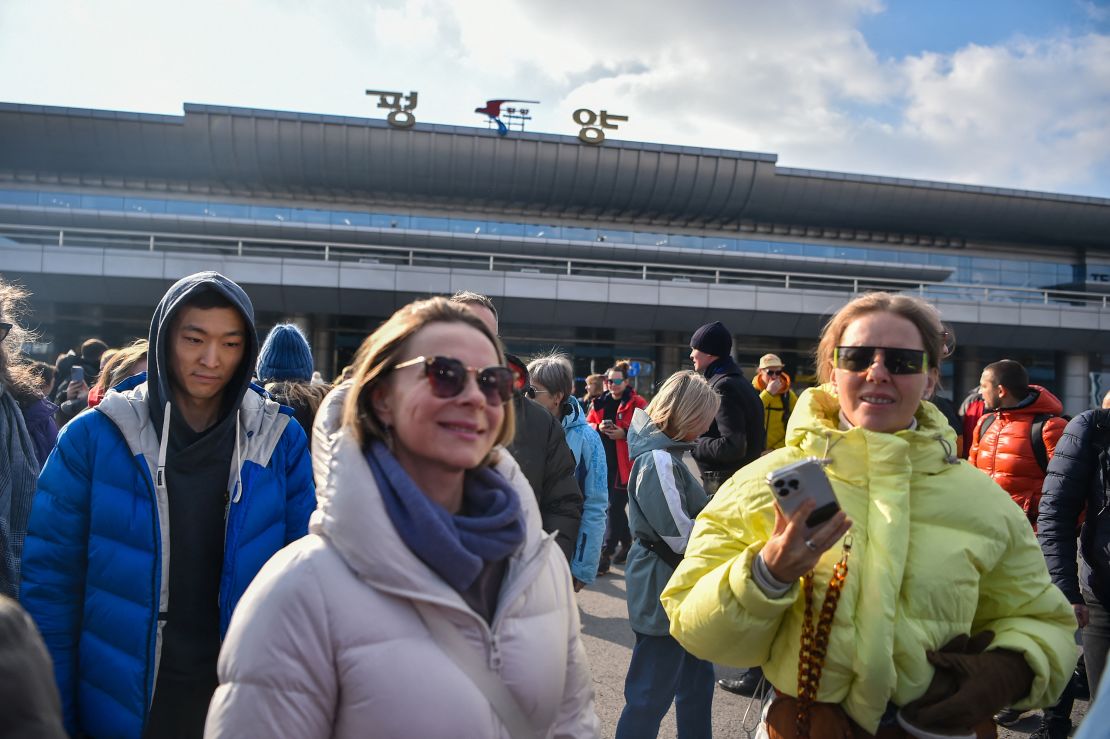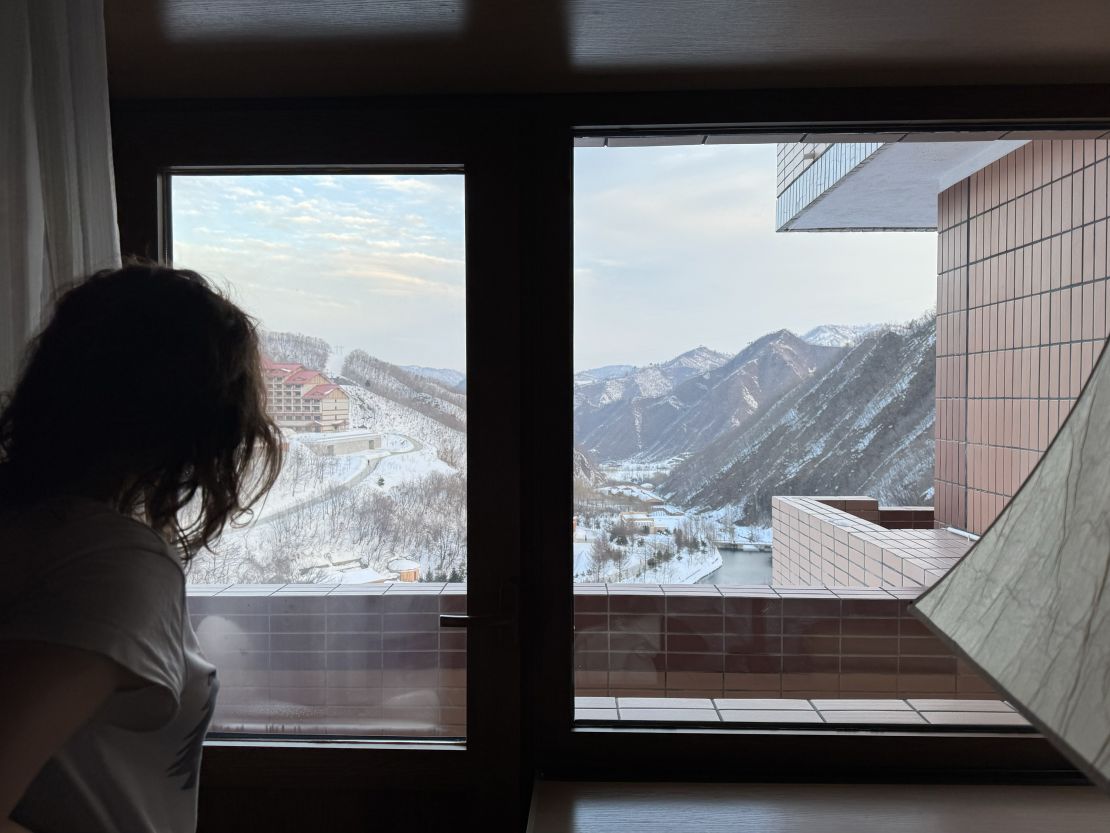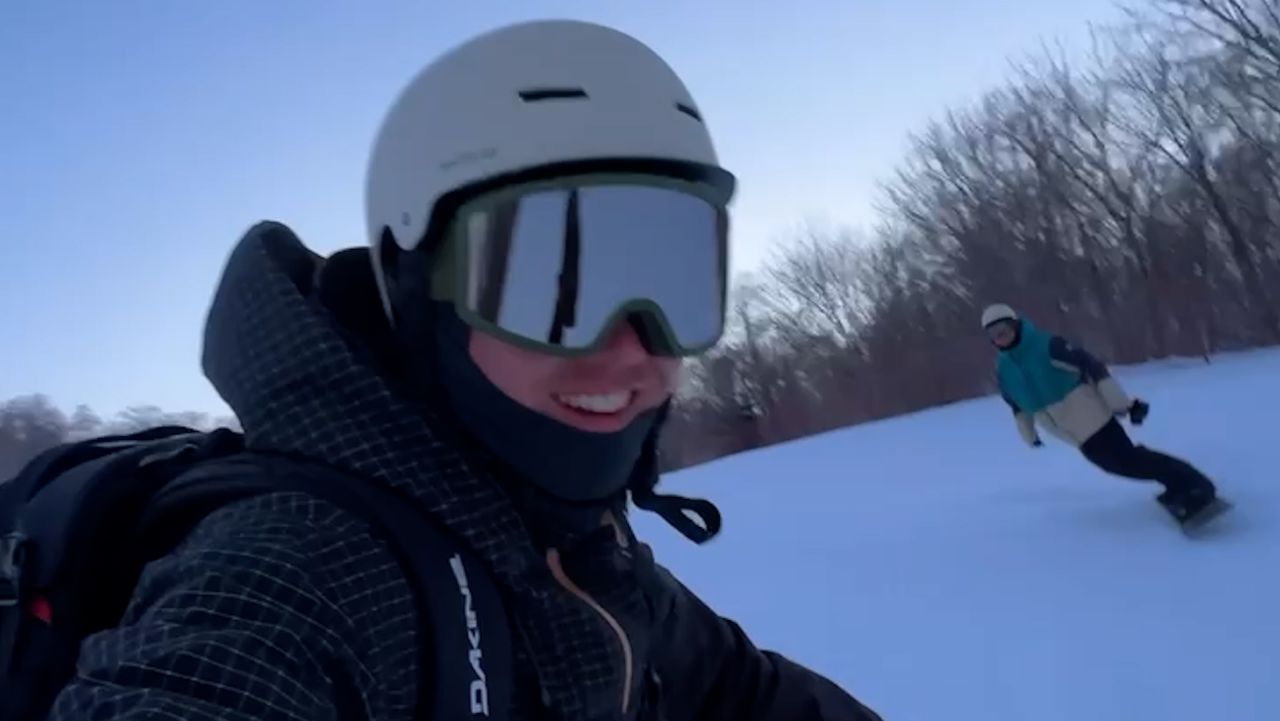Lena Bychcova couldn’t really believe it when her North Korean tourist visa came through.
Many Russian tourists have found themselves locked out of tourism destinations. But North Korea — as a key Russian ally — offered a rare opportunity to travel.
The marketing professional was one of about 100 Russian nationals who were allowed to travel to North Korea this month in what is believed to be the hermit kingdom’s first international tourist trip since the coronavirus pandemic.
Tourism in North Korea is tightly controlled. Individual travelers are not permitted into the country, and groups are accompanied by minders. Tourism revenue is used to support the regime of dictator Kim Jong Un.
Traveling to the “hermit kingdom” is not without significant risks. American college student Otto Warmbier was detained on a North Korea trip in 2016, allegedly for stealing a propaganda poster. He was returned to the United States 17 months later in a vegetative state and died soon after.
The world’s most unusual ski holiday
Bychcova and the rest of the group arrived in Pyongyang on February 9, traveling via a North Korean-owned Air Koryo plane from Vladivostok.
While Bychcova admits she was anxious about the trip, she says that curiosity won out and she couldn’t pass up the chance to see a country that few tourists have the opportunity to explore.
Travel blogger Ilya Voskresensky, who also joined the tour, felt similarly tense – he listed his part-time job, selling vintage dishes, as his profession rather than revealing he was a content creator. Despite his misgivings, he admits that one reason to go through with the trip was to discover whether modern-day North Korea would compare to the Soviet Russia his family members told him about.
“When you look at North Korea you realize that your grandma and grandpa were living like they do here,” Voskresensky tells CNN. “It’s a teleport into the past. There are absolutely no advertisements in the city. The only thing on display are party slogans, flags and so on.”

The four-day trip cost each visitor about $750. The group had Russian-speaking guides and translators with them at all times. The itinerary included a visit to the bronze statues of the late leaders Kim Il Sung and Kim Jong Il on Mansu Hill, the Mangyongdae Children’s Palace, where kids put on a music and dance performance, and three days at Masikryong Ski Resort.
The Russians were also given strict rules to follow, especially when it came to taking pictures and videos.
“We were asked not to photograph the military or people in uniform in general, not to photograph the construction sites or any of the buildings under construction,” Bychcova explains. “And there were rules about how to take photographs and generally treat portraits or sculptures of leaders. If you have a newspaper or magazine with a picture of the leader, then you cannot fold the newspaper so that the portrait becomes wrinkled.”
These newspapers became some of her favorite souvenirs from North Korea. Bychcova says that there wasn’t much to buy, but there were two shops – one in the airport and one in the capital – where she and other tourists could get magnets, dolls, Lego sets and other small gifts.

Russia and North Korea’s relationship
Before the pandemic, the largest source of inbound tourists to North Korea wasn’t Russia – it was China.
The Russian ski trippers were the first tourists allowed into the hermit kingdom since the pandemic, a sign of Russia’s increasing popularity in North Korea.
With global sanctions and a shrinking pool of allies, Russia and North Korea’s increased interest in one another has raised the alarm among US Intelligence officials.
North Korea has supplied Russia with missiles to use against Ukraine.
In February, Russian President Vladimir Putin presented a car to his North Korean counterpart Kim Jong Un. The act was a possible violation of United Nations sanctions imposed against the country for its nuclear weapons program.
Both Voskresensky and Bychcova say that their decision to travel wasn’t about politics – they went to North Korea eager to get to know local people and form relationships.
After returning, though, Bychcova doesn’t believe such a thing is truly possible in the North Korean system.
“About 200 kids – we counted them on stage! – had prepared an hour-long concert especially for us. And there were just 97 of us,” she says.
“So there were more people on stage than spectators. We could feel they were trying to create a certain image of what North Korea looks like for us. But some details revealed that it was not entirely true, that there is another life.”
While the Russians were able to discuss their trip to North Korea and their thoughts on the Kim regime freely, that same privilege does not apply in their own country.
Criticism of Putin, Russia’s policies and the military are criminal offenses in Russia.
A prominent ex-KGB official turned pro-military blogger who had been vocal in supporting the war in Ukraine was arrested and charged with “extremist activity” last summer for comments critical of Putin.
Just last week, a 33-year-old dual citizen of Russia and the United States was arrested in Yekaterinburg and accused of “providing financial assistance to a foreign state in activities directed against Russia security.” The reason? She reportedly donated $51 to a Ukrainian charity.
While both Voskresensky and Bychcova were aware of North Korea’s human rights abuses, they both tell CNN they hoped the trip would be worth it in order to connect with regular North Korean civilians.
Now, both say they would consider going to North Korea again someday – but only if the political situation changes.
“The main message of my content is that anywhere: no matter what country, no matter what nationality, it is regular people who live there, and you should treat people with love everywhere,” says Voskresensky.? “I hope traveling will save the world.”
Another Russian ski trip in North Korea is slated for March 2024.
Editor’s Note: Anna Chernova and Mariya Knight contributed translation.



